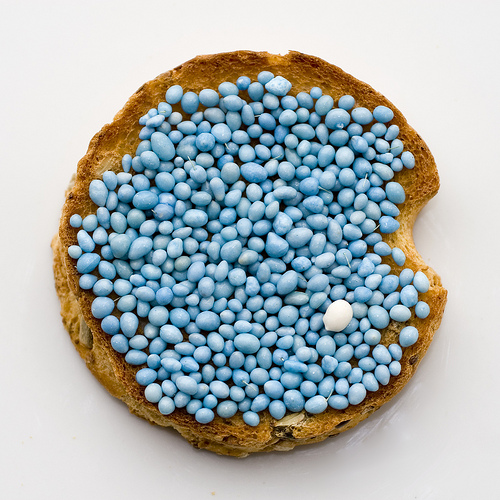The Dutch are internationally known for the fact that their English is of a very high standard.
Why is that?
Well, there are a couple of reasons.
Technical – Proximity
On a technical level, the Dutch language has its roots in the Indo-European languages (like German and English itself). For that reason, grammar structures (and often words) are very comparable in the two languages (e.g. “geef mij dat” becomes “give me that”). Compare this to Latin languages (Spanish, Italian, and French), that have a totally different structure (and grammar structures like the ’subjunctive’ that doesn’t exist in Dutch and English) – and you can appreciate the difference.
Another reason for the high level of English spoken by the Dutch is that we’ve always been a sea-going nation; trade has been at the center of Dutch society for hundreds of years. This entrepreneurial and global mindset has led to a lot of international business where you need a good level of English to be able to do your trade. In addition to this, many international companies have set up (European) headquarters in the Netherlands. Think of Ikea, Unilever, Starbucks, and more recently after Brexit, the European Medical Agency.
Subtitles & James Bond
According to the English Proficiency Index, the Dutch rank number 1, while the Germans rank number 10. Why is it then, if German and Dutch stem from the same mother-language and are quite comparable to each other, that the German level of English is so much worse (or lower) than that of the Dutch?
Here’s the complete top 10:
- Netherlands
- Sweden
- Norway
- Denmark
- Singapore
- South Africa
- Finland
- Austria
- Luxembourg
- Germany
Belgium ranks 13 (this could be due to the fact that in the south of Belgium people speak French), France, 31.
Typically, in the countries surrounding the Netherlands (with the exception of Flanders, Belgium), English/American TV shows and movies are audio-dubbed, and not subtitled as they are in the Netherlands. Hence, the degree of exposure to the English language is simply a lot lower.
Cultural – Predictability
The cultural component playing a role here is that the countries surrounding the Netherlands all score significantly higher on a cultural dimension called Predictability. This means that these countries are less entrepreneurial – they prefer to stick to the language they already know/speak –and are therefore more likely to audio-dub (so that James Bond speaks the local language).
I Always Get My Sin
The title of the book I Always Get My Sin, by Maarten H. Rijkens, illustrates clearly that the level of English isn’t the same for everyone. There are plenty of Dutch people who simply take Dutch words and Engli-fy them, leading to very weird sentences and expressions. Below is a short list of how this will or can look.
“My compliments to your cock for the lovely diner.”
“Where can I buy an uploader for my telephone?”
“We would like to go on step.”
“Where can I strike my shirts?”
“Is this fish or flesh?”
“We would like to rent a topless car.”
“At what time can we go on table?”
“Where can we put our mail on the bus?”
“Can you give me a tip?”
“The wine is up.”
Not that this generates any embarrassment for the Dutch, though – as the other side will probably not know how to begin to correct them.
Pronunciation
And finally, there is the almost famous way the Dutch pronounce English. (Though, to be fair, every non-native English-speaker has their distinct way of pronouncing things. Think about the Germans and the French…) Among the Dutch there is a wide spectrum of pronunciation, ranging from – on the one side – the Vice-President of the European Council, Frans Timmermans (close to perfect English with a close to perfect accent) and – on the other side – famous football trainer, Louis van Gaal. Louis van Gaal has mastered the skill of speaking so-called “charcoal-English” (steenkolen-Engels), whereby no effort is made to pronounce the words in a way that comes even remotely close to how the British or the Americans pronounce them.
To Summarize
For many of the Dutch people – close to 93% of the population – English is not seen as a foreign language anymore. It is seen more as a second language in this country. Therefore, don’t be surprised if, when you order your Big Mac at McDonalds or check in at a hotel, you will have to do this in English – simply because the other person doesn’t even speak Dutch.
 Want to better understand the Dutch and learn how to work with them? Get in touch with Chris Smit at culturematters.com or send an email to chris.smit@culturematters.com.
Want to better understand the Dutch and learn how to work with them? Get in touch with Chris Smit at culturematters.com or send an email to chris.smit@culturematters.com.

Everything you need to know about c ...
As an expat in the Netherlands, there might be a couple of traditions that will ...

The UnDutchables 9.0
Following the legendary previous eight editions of The UnDutchables, the 9th edition of this all ...

Gift giving in the Netherlands-all ...
If you feel like skipping your birthday, you may be in for a challenge when ...

The American Netherlander - 25 Year ...
In 1994, author Greg Shapiro came to the Netherlands. The idea was to spend a ...

How to Meet Locals in Amsterdam
Being far from home in a foreign city or country can be one of the ...

Typical Dutch Festivities
In the Netherlands, the Christmas season is marked by a sequence of typical Dutch festivities ...

Special Occasions the Dutch way
The Dutch love to mark a special occasion. What's more, for each one, they ...

Dutch Customs and Etiquette
The Netherlands has its own unique set of customs. There is an etiquette for how ...